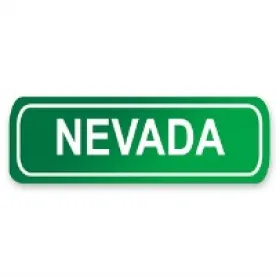Nevada employers be advised: on June 3, 2017, Governor Brian Sandoval signed into law Assembly Bill 276, which amends Chapter 613 of the Nevada Revised Statutes and sets forth a new framework in which noncompetes are evaluated. The amended law includes the following four changes:
-
A noncompete is void and unenforceable unless the noncompete:
-
Is supported by valuable consideration;
-
Does not impose any restraint that is greater than is required for the protection of the employer for whose benefit the restraint is imposed;
-
Does not impose any undue hardship on the employee; and
-
Imposes restrictions that are appropriate in relation to the valuable consideration supporting the noncompete.
-
-
A noncompete may not restrict a former employee of an employer from providing service to a former customer or client if:
-
The former employee did not solicit the former customer or client;
-
The customer or client voluntarily chose to leave and seek services from the former employee; and
-
The former employee is otherwise complying with the limitations in the noncompete as to time, geographical area and scope of activity to be restrained, other than any limitation on providing services to a former customer or client who seeks the services of the former employee without any contact instigated by the former employee.
-
-
When an employee is terminated as the result of a reduction of force, reorganization or similar restructure of the employer, a noncompete is only enforceable during the period in which the employer is paying the employee’s salary, benefits or equivalent compensation (including severance pay).
-
If an employer brings an action to enforce a noncompete and the court finds that it is supported by valuable consideration but (a) contains limitations as to time, geographical area or scope of activity to be restrained that are not reasonable, (b) imposes a greater restraint than is necessary for the protection of the employer and (c) imposes undue hardship on the employee, then the court must revise or “blue pencil” the noncompete to the extent necessary and enforce it as revised. Such revisions must render the limitations reasonable and no greater than is necessary for the protection of the employer.
Key Takeaways
The legislation does not clarify the meaning of the term “valuable consideration.” Such guidance will likely come from the courts as Nevada employees and employers litigate what is meant by the term, although it appears that an at-will employee’s continued employment in and of itself will not be considered sufficiently “valuable” under the law. In the meantime, without the benefit of legislative or judicial guidance, Nevada employers should assess whether an employee subject to a noncompete has received adequate consideration, particularly in relation to the restriction that is being imposed in the noncompete.
The legislation is also notable in that it reverses a prohibition on judicial blue penciling that was established by the Nevada Supreme Court in a 2016 decision, Golden Road Motor Inn, Inc. d/b/a Atlantis Casino Resort v. Islam and Grand Sierra Resort, 376 P.3d 151 (Nev. 2016). Nevada courts are now required to modify or “blue pencil” overbroad noncompetes to the extent necessary to render them enforceable. Although Nevada employers with an overbroad noncompete can take comfort knowing that the noncompete will not simply be discarded, they should nevertheless revise their noncompetes so that they impose restrictions in terms of time, geographical area and scope of activity that are reasonable.



 />i
/>i
